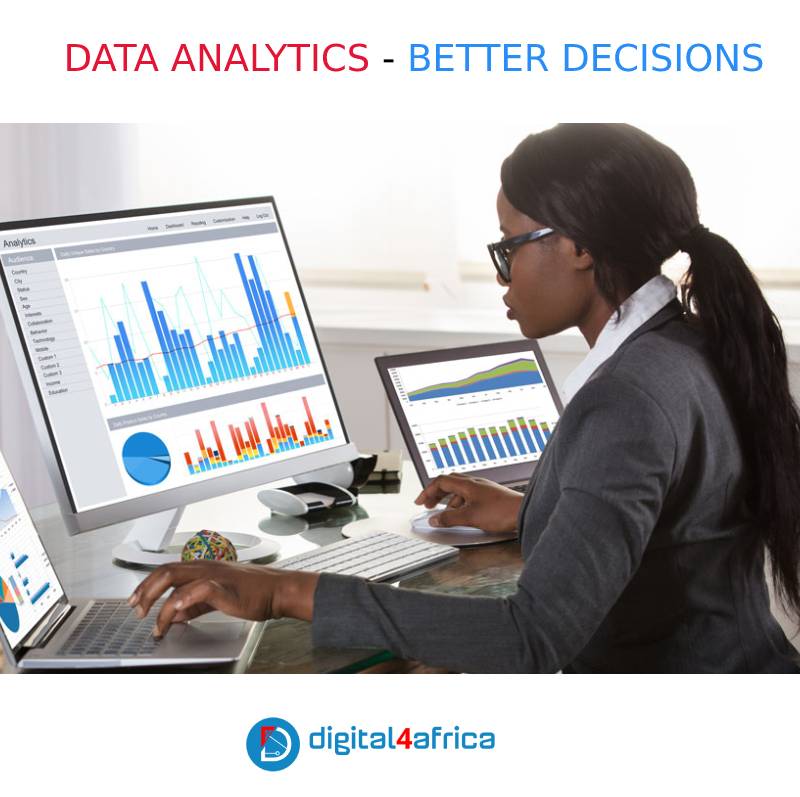Importance Of Data Analytics In Business
In today’s business world, we see the importance of data analytics in solving problems, optimizing operations, and growing sales revenue. Professionals from various fields, such as marketing, operations, sales, finance, human resources, and IT, need to understand data analytics to make better decisions and drive success for their organizations.
In this article, we will explore the importance of data analytics for various professional roles and how it can be used to improve business performance.
Marketing Professionals
Harnessing the power and importance of data analytics can empower marketing professionals to craft targeted campaigns that effectively reach the right audience. This results in increased conversions and sales. For example, tools like Google Analytics can help identify which marketing strategies are working best.
Data Analytics: Business Analysts
By delving into importance data analytics, business analysts can uncover hidden patterns, trends, and insights. This information can inform crucial business decisions and strategies. For instance, customer behavior analysis can reveal what products are most popular.
Data Analytics: Operations Managers
Leveraging data analytics helps operations managers streamline operations, reduce costs, and boost efficiency. Using tools like workflow management software, they can identify bottlenecks in processes and find ways to improve.
Data Analytics: Sales Managers
Sales managers can use data analytics to pinpoint the most profitable products and customer segments. This helps optimize sales strategies to drive revenue growth. Sales analytics tools can show which products are selling the most and who is buying them.
Data Analytics: Financial Analysts
Data analytics assists financial analysts in making accurate financial predictions and identifying potential risks or growth opportunities. For example, financial modeling software can help forecast future earnings based on past data.
Data Analytics: Supply Chain Managers
Using data analytics, supply chain managers can optimize supply chain operations, reduce costs, and improve efficiency. They can use tools like inventory management systems to keep track of stock levels and ensure timely deliveries.
Data Analytics: Human Resource Managers
Data analytics can help HR managers uncover patterns in employee data, such as turnover rates and productivity. This information can enhance workforce management and retention efforts. HR analytics software can show trends in employee performance and satisfaction.
Data Analytics: IT Professionals
IT professionals can use data analytics to optimize systems, improve security, and identify potential vulnerabilities. Security analytics tools can help detect unusual activity and prevent cyber attacks.
Data Analytics: Product Managers
Data analytics provides valuable insights into customer needs, preferences, and trends. This information can improve product development and marketing. For example, product analytics tools can show which features customers use the most.
Data Analytics: Customer Service Managers
By analyzing customer complaints, feedback, and support requests, data analytics can help improve customer service and satisfaction levels. Customer feedback tools can highlight common issues and suggest ways to address them.
Data Analytics: Digital Marketing Specialists
With data analytics, digital marketing specialists can optimize digital marketing campaigns and effectively target the right audience. Tools like social media analytics can show which posts are getting the most engagement.
Data Analytics: E-commerce Managers
Data analytics can assist e-commerce managers in optimizing website design and customer experience to boost sales and revenue. E-commerce analytics tools can reveal which pages on a website are most popular and why.
Data Analytics: Data Scientists
Data analytics is a foundational aspect of a data scientist’s role, enabling them to analyze and interpret data, make predictions, and identify patterns. Machine learning algorithms can help find hidden trends in large datasets.
Data Analytics: Business Intelligence Analysts
By utilizing data analytics, business intelligence analysts can create accurate reports, dashboards, and visualizations to inform business decisions. BI tools like Tableau can turn complex data into easy-to-understand charts and graphs.
Data Analytics: Supply Chain Managers
Data analytics helps supply chain analysts identify patterns in supply chain data, such as inventory levels and logistics, to optimize operations and reduce costs. Tools like logistics analytics can help track shipments and improve delivery times.
Data Analytics: Pricing Analysts
By analyzing pricing data, data analytics can help pricing analysts identify trends and set competitive prices to drive revenue growth. Pricing analytics tools can show how different prices affect sales.
Data Analytics: Business Development Managers
Data analytics provides valuable insights into potential growth opportunities, such as new markets or products, to increase revenue. Market analysis tools can help find areas where the business can expand.
Senior Level Executives (Directors, Board Members, and CEOs)
By utilizing data analytics, senior executives can make better strategic decisions, identify potential risks or opportunities, and position the organization for success. Executive dashboards can provide a high-level view of the company’s performance.
At Digital4Africa, we are now offering a four-day course in data analytics to help you achieve your business goals. Check it out. You get case studies, a certificate, project assignment, and 30 days of free mentorship.
Data analytics is a powerful tool that can help every professional role improve and succeed. By learning how to use data effectively, you can make better decisions and drive your business forward.
Francis Waithaka is the founder and lead trainer at Digital4Africa, a company specializing in technology and digital advertising. With over two decades of experience in the field, Francis is an expert in helping businesses and organizations navigate the ever-changing world of digital marketing and technology.


